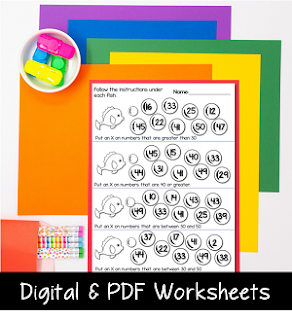Have you ever tried something in your classroom that you wanted to be amazing, but it just... wasn’t? That was me the first time I tried teaching my first graders about bucket filling.
I loved the concept, encouraging kindness and helping students recognize the good in others Actually implementing it with my first graders was rough My students struggled with the writing component, the buckets were underused, and the idea fizzled out within weeks.
But I didn’t give up—and I’m so glad I didn’t Let me walk you through how I turned things around and implemented a bucket filler routine that made bucket filling a meaningful, year-long part of our classroom community.
The First Attempt (and the Honest Truth)
The first time I introduced bucket filling, I focused on having students write notes to fill each other’s buckets. I had visions of messages filling buckets daily, but I was so far off the mark.
Reality check: First graders aren’t exactly pros at writing kind, though ful sentences, especially in September. Instead of full buckets and happy kids, I had frustrated students who wanted to write something but couldn't, so the whole process was a bust!
What I Did Differently (And What Finally Worked)
Fast forward to the next school year.
Instead of writing full messages, I created simple “bu ket slips” that were quick to fill out. Students just needed to write their name and put it into the bucket of the student they wanted to recognize.
We read the book How Full is Your Bucket for Kids and talked about what bucket filling looked like.
Once they understood what bucket filling was and could easily write a note, the concept took off as I had hoped.
Building a Bucket-Filling Culture
The success came when I stopped expecting magic and started eaching the behaviours I wanted to see. A whole class sort of bucket filling and bucket dipping behaviours was key.
That’s when I created four simple lessons to guide my stud nts through the bucket-filling process. Each one is designed to break things down in a way at young learners can really grasp:
1. What is Bucket Filling?
I introduced the concept with a picture book, and we briefly iscussed what bucket filling means.
2. What does bucket filling and bucket dipping look like?
We sorted classroom scenarios and statements to create a cla room anchor chart of behaviours.
3. Being a bucket filler at home and in the community
How can you be a buc et filler at home and in the community? What kind of acts might fill meone's bucket in those instances?
4. Introducing the classroom bucket display and how to use it
Students learn how the interactive classroom display works and how to fill out a bucket te for someone they want to recognize. I've included a photo series to show how I put the buckets together using library pockets.
These lessons are all included in my Bucket Filling Activities Pack along with bu ket notes, display materials, and more. Everything’s ready to print and go—perfect for busy teachers who want to build classroom community without reinventing the wheel.
Tips for a Smooth Start
If you're thinking about introducing bucket filling in your classroom, here are a few things that made all the difference f r me:
- Start slow and model everything. Young kids need to see examples before they can do it t emselves.
- Make it part of your rou ne. Decide how you want it to be used. Can students fill out and deliver a bucket note at any time, or do you want to have it happen at a certain time or day?
- Use visuals and picture books. Cr ate an anchor chart and bulletin board. Read the book How to Fill a Bucket for Kids and other books about bucket filling to help students unders and the concept.
- Celebrate the impact. Occasionally sharing a few bucket slips aloud that you received (with student permission) reminds everyone how powerful kindness can be.
Bucket Filling Goes Beyond the Classroom
One of the best parts of this practice is how it naturally connects o your social-emotional learning goals. You’re not just encouraging kindness, you’re teaching empathy, communication, and emotional awareness.
Some of my students even took it home. One parent told me their child created a “home bucket” and asked their family to start filling it. That definitely made my day.
Ready to Try It?
If bucket filling is something you've been curious about but weren’t sure how to get started, take it from me: keep it simple, make it visual, and most importantly, make it part of your classroom culture.
If you're looking for ready-made materials to get going without the overwhelm, my Bucket Filling Activities Pack incl des everything I’ve mentioned and more. It's all been tried and tested in my own first grade classroom, and it’s made a real difference.
Take a moment to Pin It!
Until next time.


















.png)









Your bucket filling does sound awesome! I can't wait to see how they do when I'm in for lunch duty next! :) Thanks for linking up this week!
ReplyDelete~Erin
Mrs. Beattie's Classroom
They do need some encouragement. Perhaps you can notice someone who filled your bucket by doing a great job at lunch :)
Delete